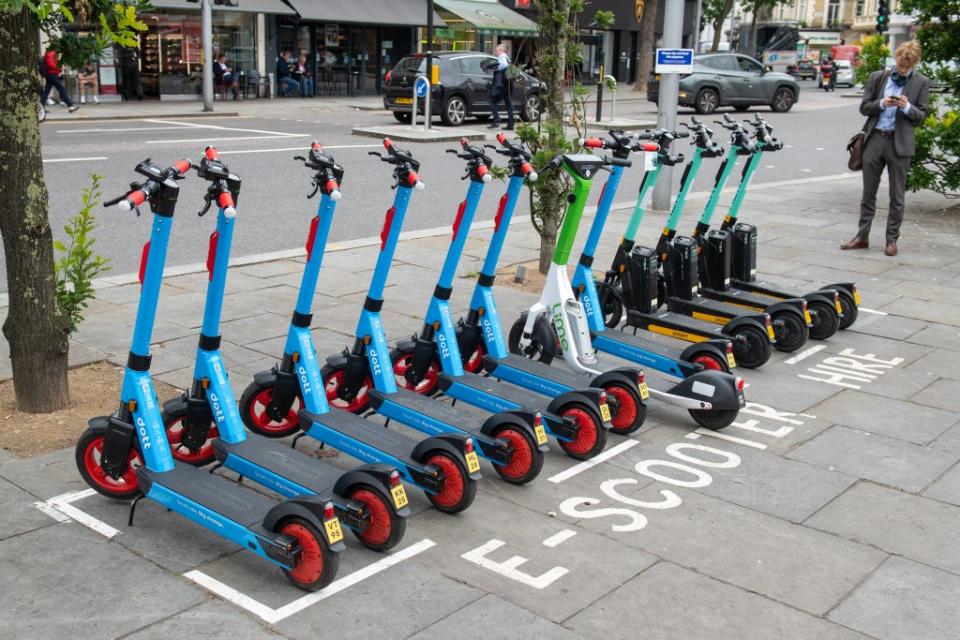Here it hums: UCL creates audible alert for e-scooters

Experts at University College London have been asked to create an audible alert for e-scooters to warn pedestrians that a rider is approaching.
This is likely to be a noise that sounds continuously while the scooter is being ridden rather than an alarm or bell activated by the rider.
The three firms involved in the London trials of rentable e-scooters – Tier, Lime and Dott – are working with UCL to develop a “universal sound” for the battery-powered vehicles, which can travel at up to 12.5mph.
The hope is that the alert will be in place by the end of the year and eventually be adopted by all e-scooter firms across the UK, meaning a single recognisable noise is associated with e-scooters.
The work will start next month and be carried out at UCL’s PEARL (Person-Environment-Activity Research Laboratory) research facility in Dagenham, which can recreate urban conditions.
Professor Nick Tyler, director of the PEARL laboratory, told the Standard that all options were open but it was likely to be “fundamentally different” to the beeping noise emitted by electric “golf buggy” people-carriers used in many airports.
Nor would the noise be akin to a siren used by emergency vehicles, he said. Professor Tyler said the study would draw on the “evolution of human hearing” and how the brain is able to draw on small sounds to alert the eye to potential danger.
Several options were likely to be suggested, with the scooter firms and Transport for London left to choose their favourite.
“One of the interesting things is that a sound doesn’t need to be loud, it just needs to be distinctive, for example the snapping of a twig,” Professor Tyler said.
“We would want to place it at a frequency and loudness that is less than the loudness of the traffic. The idea is that it would be a distinctive sound but not add to the urban cacophony.”
He added: “There are a lot of people very worried by scooters. I think the problem is that people have an experience of being surprised by a scooter coming past them from behind. That kind of surprise is quite shocking.”
Concerns have been expressed since the launch of the London hire e-scooters last June that pedestrians, and in particular blind people, are at risk of being involved in a collision because the devices are virtually silent.
A total of 14 serious injuries - including two to pedestrians - have been reported by the operators involved in the London trials, which are taking place across 10 boroughs including Camden, Westminster, Ealing and Richmond.
Separate UK-wide data from the Department for Transport shows that in the year to last June, 131 pedestrians were injured in e-scooter collisions, primarily those that are privately owned and illegal to ride on public roads and pavements.
Three people were killed riding private e-scooters in London last year. Two were thought to have been involved in collisions with a car while the third victim is believed to have fallen from his e-scooter.
More than 585,000 trips have been made on the capital’s fleet of almost 3,600 e-scooters since the trial launched last June.

 Yahoo News
Yahoo News 